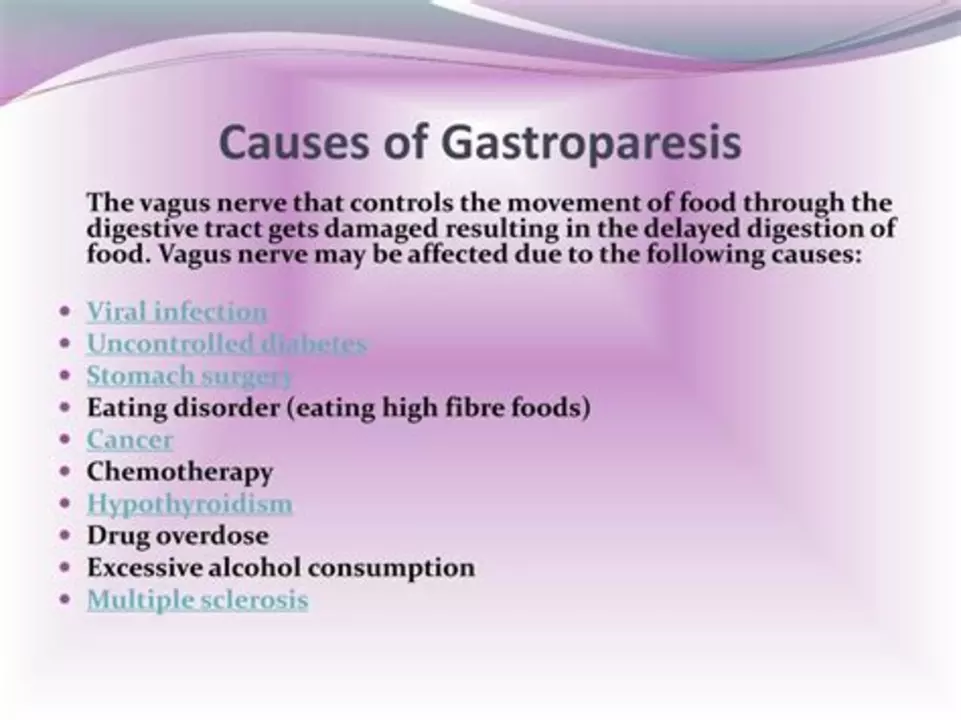Diabetic Gastroparesis: What It Is and How to Handle It
If you have diabetes and often feel full after just a few bites, you might be dealing with diabetic gastroparesis. It’s a condition where the stomach empties far slower than it should because high blood sugar damages the nerves that control digestion.
Spotting the Signs
The most common clues are nausea, bloating, and early satiety – meaning you feel full quickly. You might also notice vomiting undigested food, unpredictable blood‑sugar spikes after meals, or weight loss despite eating enough. These symptoms can come on gradually, so pay attention to any new digestive hiccups.
Why It Happens
When glucose stays high for a long time, the vagus nerve that tells your stomach when to contract gets impaired. Without proper signals, food sits in the stomach longer, leading to the uncomfortable feelings you experience. Other factors like certain meds (e.g., GLP‑1 agonists) or low magnesium can worsen the slowdown.
Managing diabetic gastroparesis starts with tighter blood‑sugar control. Small, frequent meals that are low in fat and fiber move through faster than big heavy plates. Opt for softer foods – soups, smoothies, oatmeal – because they require less grinding by the stomach.
Don’t forget to chew well; breaking food down mechanically helps the gut do its job. Some doctors recommend liquid nutrition shakes between meals to keep calories up without overloading the stomach.
If symptoms persist, talk to your doctor about pro‑kinetic medications like metoclopramide or erythromycin. These drugs boost stomach muscle activity and can reduce nausea. In severe cases, a feeding tube placed directly into the small intestine might be considered.
Lifestyle tweaks also matter. Stay upright for at least an hour after eating to let gravity aid digestion. Light walks after meals are great – they stimulate gut movement without stressing your heart.
Finally, keep track of what foods trigger the worst reactions. A simple food diary can reveal patterns and help you fine‑tune your diet faster than trial‑and‑error alone.
Diabetic gastroparesis is frustrating, but with steady blood‑sugar monitoring, smart eating habits, and the right medical support, you can get a lot more control over how you feel day to day.


